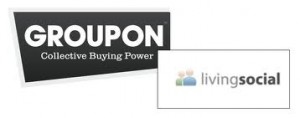Each year more and more Americans, as well as those around the world, undergo cosmetic surgery. While there are many considerations that go into why and how one may head to the operating room table to change their facial appearance or body shape, cost is always a significant issue.Even amongst the most ardent detractors of cosmetic surgery, if cost was removed as an obstacle some would soften their opinion.

The impact of financing for cosmetic surgery over the past decade has been huge and is one of the major factors in the frequency and popularity of these surgical manipulations. I have seen the percent of patients who finance cosmetic surgery in my own practice change from around 10% in 2000 to over 40% by 2010. This does not include patients who pay for their surgery on their own credit cards. Whether they pay it off before interest accrues or effectively finance it by paying off over time is unknown.

Couponing, if you will, has spread from their historic use in the grocery store to cosmetic care today. Between the high costs of surgical and non-surgical procedures and the recent and ongoing economic recession, many people shop for the best deal using the coupon approach. More significant savings are usually realized on lower cost procedures (under a few hundred dollars) than more costly ones due to the overhead expenses of the providers. This is why actual surgery appears less frequently than something like Botox in a coupon sales approach.
Coupons for cosmetic procedures, while sparking great interest from consumers, is highly controversial amongst cosmetic practitioners. While the coupon company earns a nearly equal amount from the coupon sale as the provider, the doctor has to do all the work and assume all the risks of making a satisfied patient. If there is unhappiness with a coupon-generated service, the doctor must accommodate the patient secondarily not the coupon company. In addition, the theory of generating a repeat patient based on exposure to the practice because of a coupon is largely theoretical. These new coupon patients are coming in for the deal and often nothing more. Coupons do not generate patient loyalty…other than to the next coupon deal.
Dr. Barry Eppley
Indianapolis, Indiana


